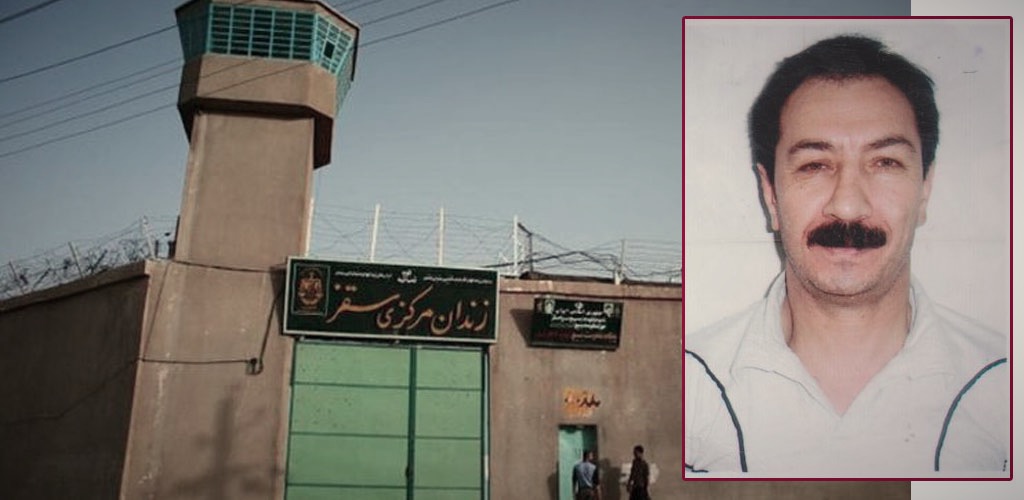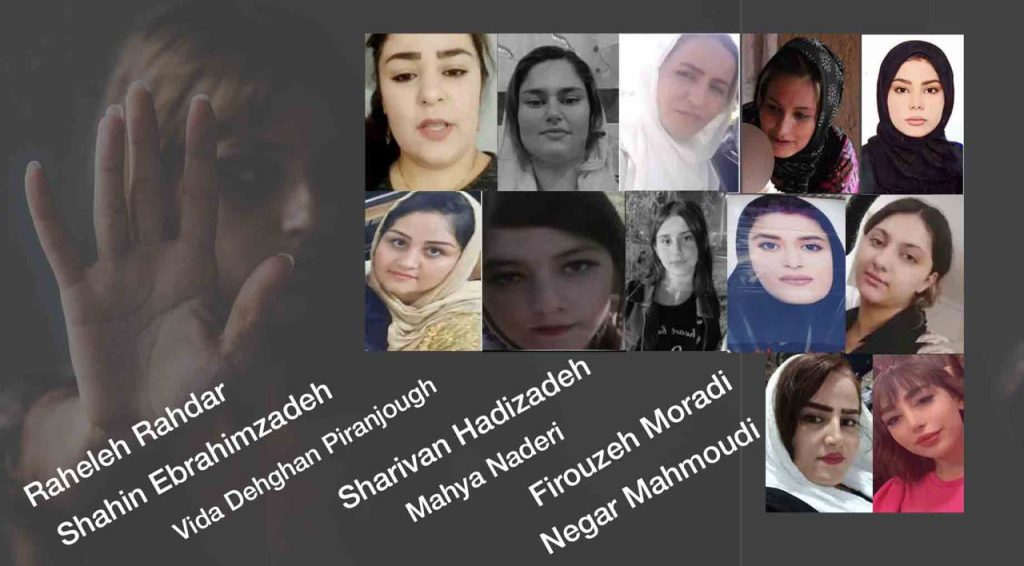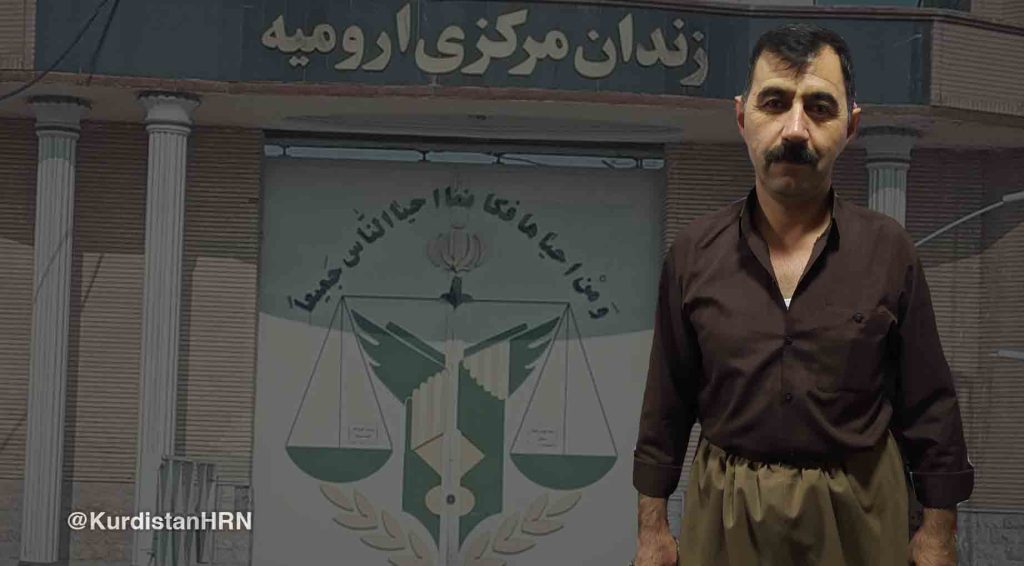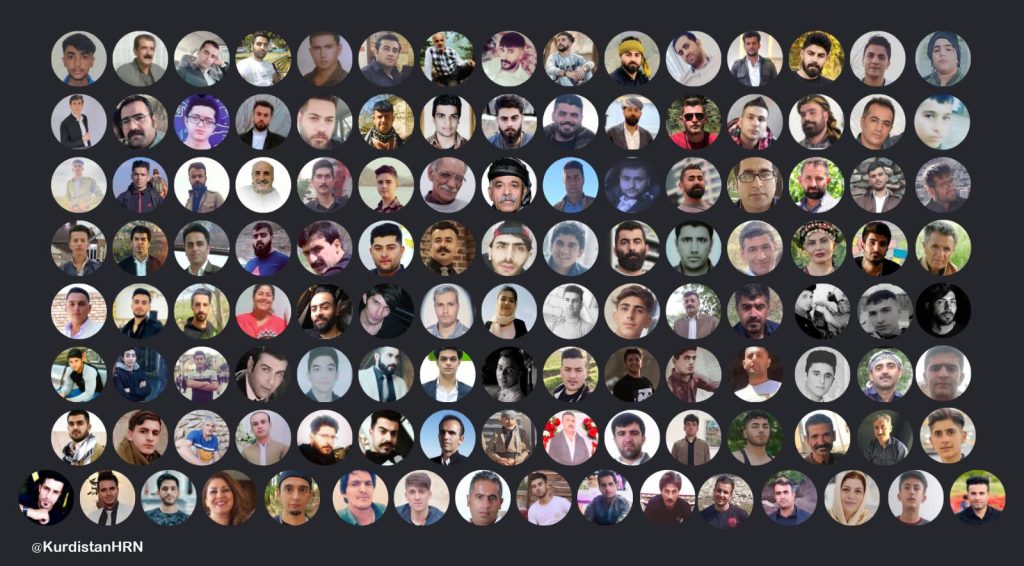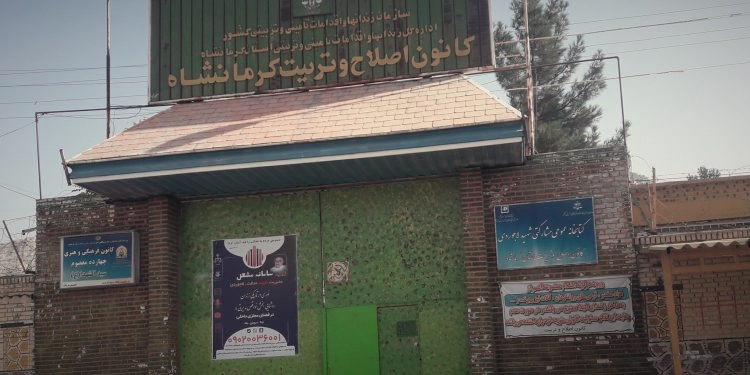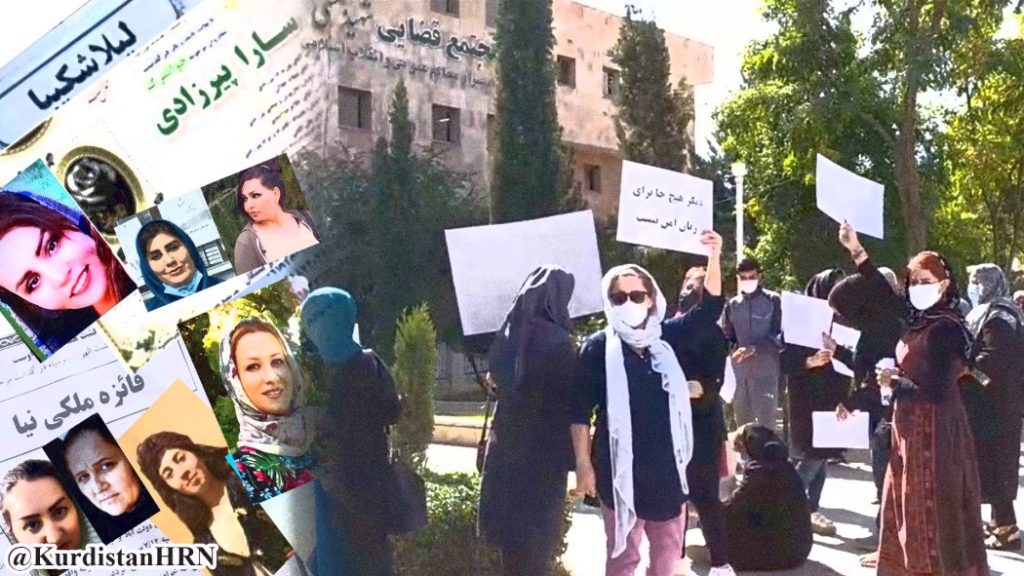Mohammad Jabbari, Public and Revolutionary Prosecutor of Kurdistan Province, announced that the main charges against the Kurdish political prisoner Mostafa Salimi were mischief, armed robbery and the murder of two police officers. He denied any ties of the prisoner to Kurdish political parties. “This prisoner has no political, security and criminal record, or history of affiliation with the counter-revolutionary groups at all. This prisoner was arrested by law enforcement officers, and with the cooperation of the people of Baneh and Saqqez.”, Jabbari said, without mentioning the exact location of Mustafa Salimi’s arrest after his escape.
Mostafa Salimi has been executed in Saqqez Prison on Saturday, Apr 11, 2020.
“Mr Salimi was very anxious and worried during the last meeting with his son and told him that he had managed to leave Iran after escaping from prison, but that he was detained by the police force of Kurdistan Regional Government (KRG) near the city of Panjwin in Sulaimaniyah province and handed over to Iranian authorities.”, an informed source told Kurdistan Human Rights Network.
A spokesman for the Kurdistan Regional Government (KRG) released a statement in which he had stated, that he was unaware of Mostafa Salimi’s extradition to Iran by the KRG police. “If these are accurate, the handover has taken place without the knowledge of the KRG and the Prime Minister has now ordered the relevant authorities to investigate the matter.”, the spokesman has said.
KHRN has also obtained a copy of the decree issued by the Supreme Court, No. 3/3994 dated 05 March 2005 according to which Mr Salimi had been accused of “collaborating with a group of democrats and raising funds for this group”, contrary to the above-mentioned claims made by the prosecutor of the General and Revolutionary Court of Kurdistan. In the political literature of the Islamic Republic of Iran, the term “Group” is used for the opposition parties of Kurdistan, and it seems that the term “Democrat” refers to the Democratic Party of Kurdistan of Iran. Mr Salimi’s membership in this group has also been confirmed by officials of the Kurdistan Democratic Party, who have stated that he had returned to Iran at his own request after two years of membership in the party.
According to the decree issued against Mostafa Salimi, he was sentenced to 15 years in prison, 74 lashes and execution on the charges of “Moharebeh and corruption on earth” and “robbery” per Articles 190 and 653 of the Islamic Penal Code (enacted in 1991). Other charges filed against him include “creating an atmosphere of fear and armed conflict with the law enforcement officers”. However, contrary to the claim of Mohammad Jabbari, the prosecutor of the General and Revolutionary Court of Kurdistan Province, there is no mention of the alleged murder of the two police officers by Salimi in the decree. It is noteworthy that the detainee’s confessions of other charges mentioned in the degree were made under torture and in a court in which the principles of fairness were not observed.
The following report details the re-arrest of Mostafa Salimi and the enforcement of his death sentence, as well as the process of his initial detention and the issuance of imprisonment sentence and execution for him.
Re-arrest and Execution
The news of the imminent execution of “Mostafa Salimi” and “Shoresh Morovati” was confirmed yesterday by activists and Human Rights Organizations in Kurdistan. Saqqez prison officials unexpectedly called the families of the detainees to schedule a visit on Friday morning. Although there is no information on the details of the meeting and the issuance of the death sentence for Marvati, Mustafa Salimi was unaware of the possibility of a death sentence issued against him when meeting his family, the day before his execution on April 12.
“Yesterday, Mostafa Salimi’s family was contacted and asked by prison officials to pay him a visit. In the meeting between Mr Salimi and his son, there was no mention of the possibility of the death sentence. Prison officials had previously told Salimi’s son that he would be deported to Sanandaj Prison in the coming days.”, an informed source in Saqqez told the Kurdistan Human Rights Network:
“Mr. Salimi was not in a good mood during the visit and told his son that he was very anxious and worried after escaping from prison. He had left Iran, but he was detained by the Kurdistan Regional Government’s security forces near the city of Panjwin in Sulaimaniyah province and handed over to Iran.” the source said.
Mostafa Salimi’s body was handed over to his family by the Office of Forensic Medicine yesterday after his execution. His body was transferred to the village of Ilo to be buried. The prisoner, along with dozens of other prisoners, had escaped from the Saqqez prison on March 29.
Although no official Iranian or Kurdish sources have yet confirmed how the detainee was detained or handed over to Iran, it is said that he was handed over by the Asayesh Group affiliated with the Patriotic Union of Kurdistan.
The Public Prosecutor of Kurdistan Province, however, confirmed the arrest of Morovati while referring to him as the “leader of the riot in Saqqez Prison,” on April 7, in the city of Baneh. This prisoner was arrested in 2009 on charges of premeditated murder and sentenced to retaliation.
- Preliminary Arrest and Death Sentence
Mostafa Salimi, born in June 1967, was arrested by the police in Nahavand of Hamadan province, on April 5, 2003. Two days after his arrest, he was transferred to the police station of the district 13 of Saqqez city in Kurdistan province, where he was subjected to the most severe physical and mental torture for 16 days. At the first meeting with his family, he described the details of the torture.
The death sentence was issued by Judge Goodini, head of the Saqqez General and Revolutionary Court, and later upheld by the Saqqez Court of Appels. However, upon the contest statements submitted by his lawyer, the dossier of his case was sent to the Supreme Court (branch 31) which returned the dossier of the case to the branch issuing the initial sentence for further investigations.
Mostafa Salimi was once again sentenced to 15 years in prison and exiled to Sirjan Prison on charges of “armed robbery and armed conflict” as well as “membership in the Kurdistan Democratic Party of Iran”. Upon contesting the verdict again, another hearing was held at Branch 15 of the Supreme Court with the presence of this prisoner and his lawyer. The verdict was upheld again.
The attempts of his lawyer and his family to request a retrial was unsuccessful in 2013 as they did not receive any response to their requests. The prisoner’s request for amnesty was also rejected by the Amnesty and Forgiveness Commission in February.
- Right to escape and prohibition of extradition
Having served 17 years in prison without the right to leave, Mustafa Salimi finally escaped on March 27 from Saqqez Central Prison weeks ago, following a major riot during which several dozens of prisoners fled to save their lifes which is a legally accepted right for prisoners. After leaving Iran, he was deported and handed over to Iran by the Kurdistan Regional Government contrary to the human rights, which prohibit the return of a prisoner at risk of execution to a country where the death penalty has not been abolished.
The KRG was expected to use all its legal means to shelter Mostafa Salimi and prevent his execution, as officials have repeatedly stated that they would refrain from enforcing the death penalty for violating human rights. Asayesh officials were required by international and domestic law to extradite Mustafa Salimi to one of the UNHCR’s offices in the Kurdistan Region after his arrest, even if they wanted to comply to the extradition law. In case of a criminal act Kurdistan regional court will have to decide on an official request made by the Iranian government to extradite a fugitive. In addition, the presence of Mostafa Salimi should have been reported to Kurdistan Democratic Party of Iran, according to the agreements between the Kurdistan Region and the Iranian Kurdish parties based in this region for the residence and protection of their members.

